Roundtable Discussion between Outside Directors
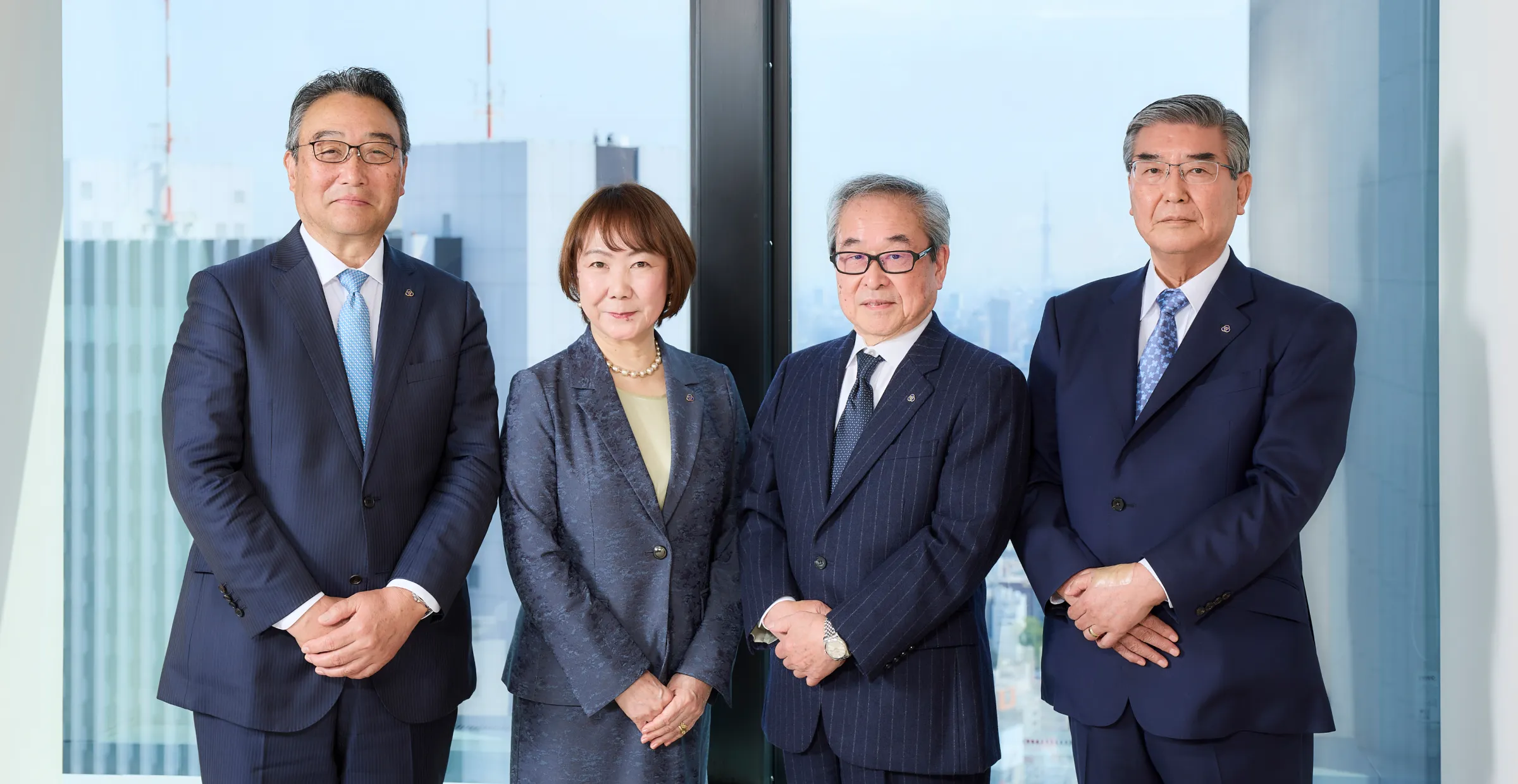
(Photo left)
Independent Outside Director
Masanaka Yokota
(Photo center left)
Independent Outside Director
Hiroko Ishimura
(Photo center right)
Independent Outside Director Audit & Supervisory Committee Member
Akira Gokita
(Photo right)
Independent Outside Director Audit & Supervisory Committee Member
Tsunekatsu Yonezawa
- Reprinted from Integrated Report 2024
The Sanwa Group is working to address the core policies outlined in its Mid-Term Management Plan 2024 as part of a commitment to achieving its Long-Term Vision for 2030.
We believe that putting in place an effective governance system and ensuring that it functions as intended are prerequisites for achieving our Long-Term Vision.
In this roundtable discussion, four outside directors came together to talk about a range of issues affecting the Group. Subjects they touched on included the progress and evaluation of the Mid-Term Management Plan 2024; topics requiring discussion at Board meetings that are positioned as the core of corporate governance, and ensuring the Board's effectiveness; assessing ESG material themes and related issues; and the perspectives and management strategies needed for sustainable growth.
Progress and evaluation of the Mid-Term Management Plan 2024
Gokita Firstly, I would like to discuss the progress of the Mid-Term Management Plan 2024 (MMP). I am very pleased to see that the Group has achieved the numerical targets for net sales, operating profit, etc., in both fiscal 2022 and 2023. However, if it is to become the global leader in smart entrance solutions as envisaged in its Long-Term Vision, it will need to aim not only to expand in terms of quantity, but also to make qualitative improvements. In particular, I think it will be necessary to show a path for enhancing human capital. I hope that future management plans will include more qualitative elements, such as human resource development policies that respond to changes in the external environment and more ambitious diversity promotion targets.
Ishimura I, too, think that the fact that the Group achieved its numerical targets is extremely commendable. However, I still have concerns about whether it will be able to attain sustainable growth and make qualitative improvements to its management. On top of the issue of diversity you just mentioned, I get the feeling that the Group is not making much headway with its digital strategy. The use of digital technology is vital for creating new things, the lifeblood of the manufacturing industry, as well as for providing new value to stakeholders. With this in mind, I look forward to seeing the Group come up with more specific measures to bring about its digital transformation (DX).
Yokota With regard to the basic strategies of the current MMP, which include measures to strengthen core businesses in Japan, North America, and Europe, and to strengthen the basis for growth of the Asia business, it was sometimes difficult for us to grasp the progress being made based solely on the information we received at Board meetings and through other sources. We are now aware that we need to obtain more detailed information and deepen our understanding of the Group's global strategies by region.
Yonezawa I think we should also objectively analyze the factors that led to the recording of operating profits far exceeding forecasts. The biggest factor was the strong performance of ODC in North America, which was driven by the favorable exchange rate and market environment. As such, we must be careful not to attribute this solely to the Group's capabilities or the results of the measures it has taken. To this end, I have requested at Management Conference and elsewhere that, at the end of fiscal 2024, when analyzing and evaluating performance over the past three years and setting numerical targets in the next management plan, the Group should also conduct its analysis from the perspective of external factors, and then review these targets.
Topics requiring discussion at Board meetings and ensuring the Board's effectiveness
Gokita Next, I would like to make some suggestions concerning the topics and effectiveness of Board meetings. At the Board meetings I have attended to date, we outside directors have been given materials such as the MMP, which has already been completed, and discussions go no further than exchanging opinions on these materials. Board meetings are a place where we can discuss matters from an impartial standpoint. For this reason, I believe it would be great if we had the opportunity to engage in free discussions on the content of management strategies, incorporating our perspectives as outside directors. I think that the ideal role of Board meetings is to review the vision for the Sanwa Group and its business portfolio in the process of exchanging multifaceted opinions, and to reflect the results of these discussions in the Long-Term Vision and Mid-Term plans.
Yonezawa It may be difficult to have such discussions, given the current frequency and duration of the meetings. The Group should consider an approach whereby the chair of the Board of Directors issues a notice of convocation of meetings as needed, rather than being overly bound by the pre-determined annual schedule. This could be achieved, for example, by setting up agenda items such as "formulation of management strategy." In particular, as you just pointed out, Ms. Ishimura, there is plenty of room for discussion on the content of the digital strategy. Also, from my experience, I have always said that MMP should focus on qualitative aspects, such as strategy, and that quantitative aspects should be conceptual numerical targets.
Ishimura The Group needs to strengthen the organizational systems underpinning its digital and human resources strategies, and to create forward-looking policies. For a company of the Sanwa Group's scale and high level of organizational maturity, digital transformation and human resources policies should be one of the pillars supporting management. For starters, I would like to see Sanwa Holdings secure human resources capable of playing the roles of CDXO and CHRO. In terms of the Group as a whole, the basic premise should be to raise the level of knowledge of digital transformation, rather than just focusing on traditional IT. And at the operational level, one option for supplementing the roles of specialists in digital transformation, data scientists and AI engineers, who are difficult to train in-house, is to outsource them.
Gokita Your suggestion to solidify the foundation for growth by reflecting approaches to digital transformation and human capital management that are gaining momentum in today's industry is very important. At the same time, the Group is also focusing on human resource development, with People as one of its ESG material themes, and one of the basic strategies in the current MMP is "improve productivity through digitalization and manufacturing innovation." For this reason, the Board of Directors should first discuss whether it would be better to continue with the current organizational structure, personnel system, and manufacturing policies, or whether the Group should consider incorporating more industry trends.
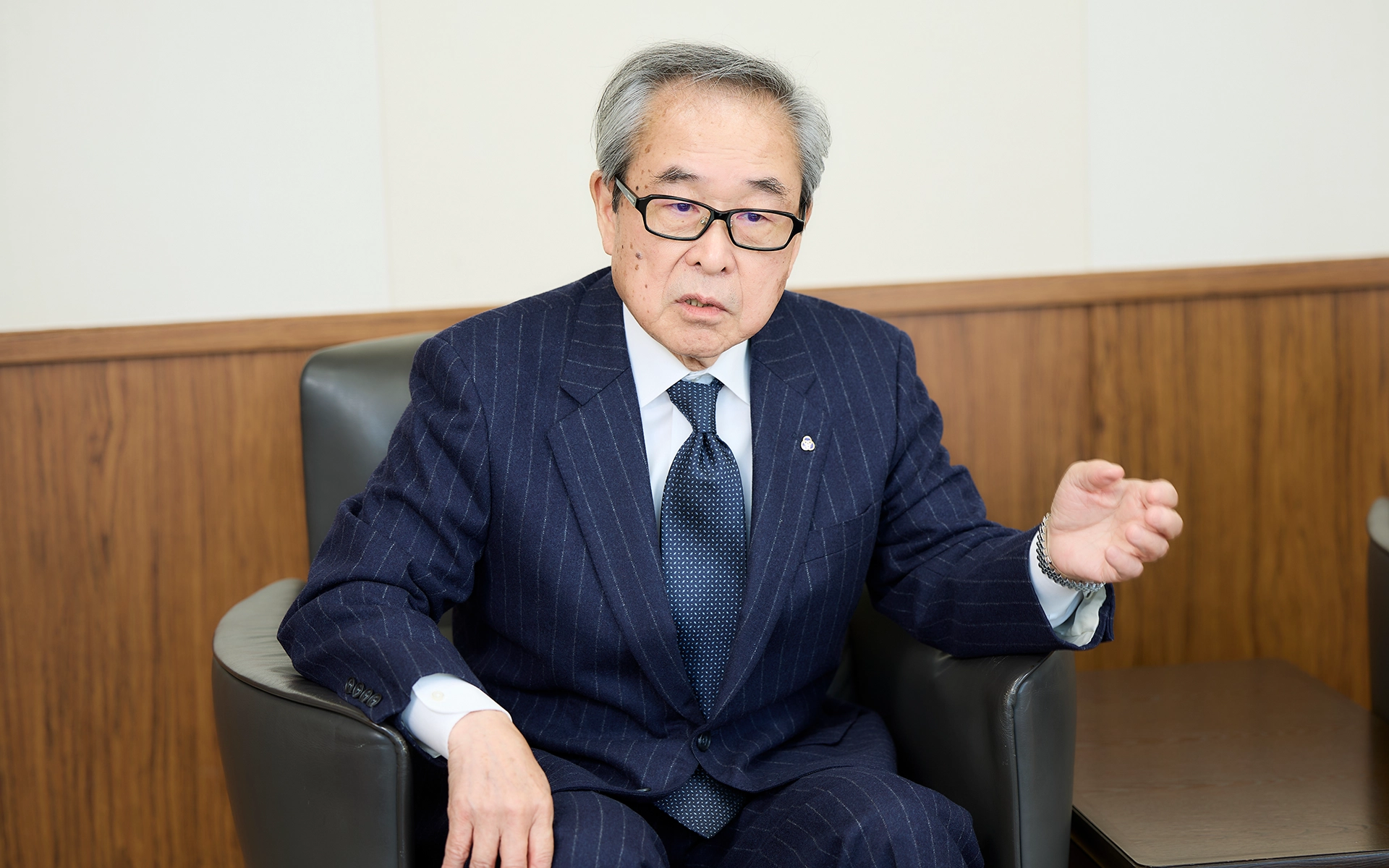
Yokota I would like to use this opportunity to share my thoughts on the effectiveness of the Board of Directors. First of all, as a prerequisite, we evaluate the progress of management strategies and measures at Board meetings. In addition to this, we also discuss the content of proposals from executive officers, and are responsible for monitoring and supervising their activities, as well as providing advice. Evaluating the effectiveness of the Board of Directors is a part of the PDCA cycle, a self-checking process to determine whether the roles we play are effectively functioning to enhance corporate value. This cycle is gradually taking hold, and combined with the annual questionnaire and analysis, I feel that it is helping to improve Board meetings. For each item on the agenda and proposal, we outside directors are free to voice our opinions and ask questions, and there is a system in place for us to receive responses from the executive side.
Gokita There is no doubt that we outside directors are able to have open and free discussions. However, as you say, I think we ought to be having more in-depth discussions on topics that cut across the entire Group in addition to individual items on the meeting agenda. By this, I mean such issues as digitalization and digital transformation strategies, human resources strategies including training systems, the Group's overall management structure consisting of Sanwa Holdings and business companies, and the Group's business portfolio.
Yokota Yes, it is certainly true that the PDCA cycle is functioning well for individual agenda items. However, when we look at Board meetings as a whole, among other things, it is clear that there are issues with the processes by which the content of Group strategy is discussed and formulated, and this is something that needs to be improved. To enhance the effectiveness of the Board, it is essential to ensure the diversity of its members.
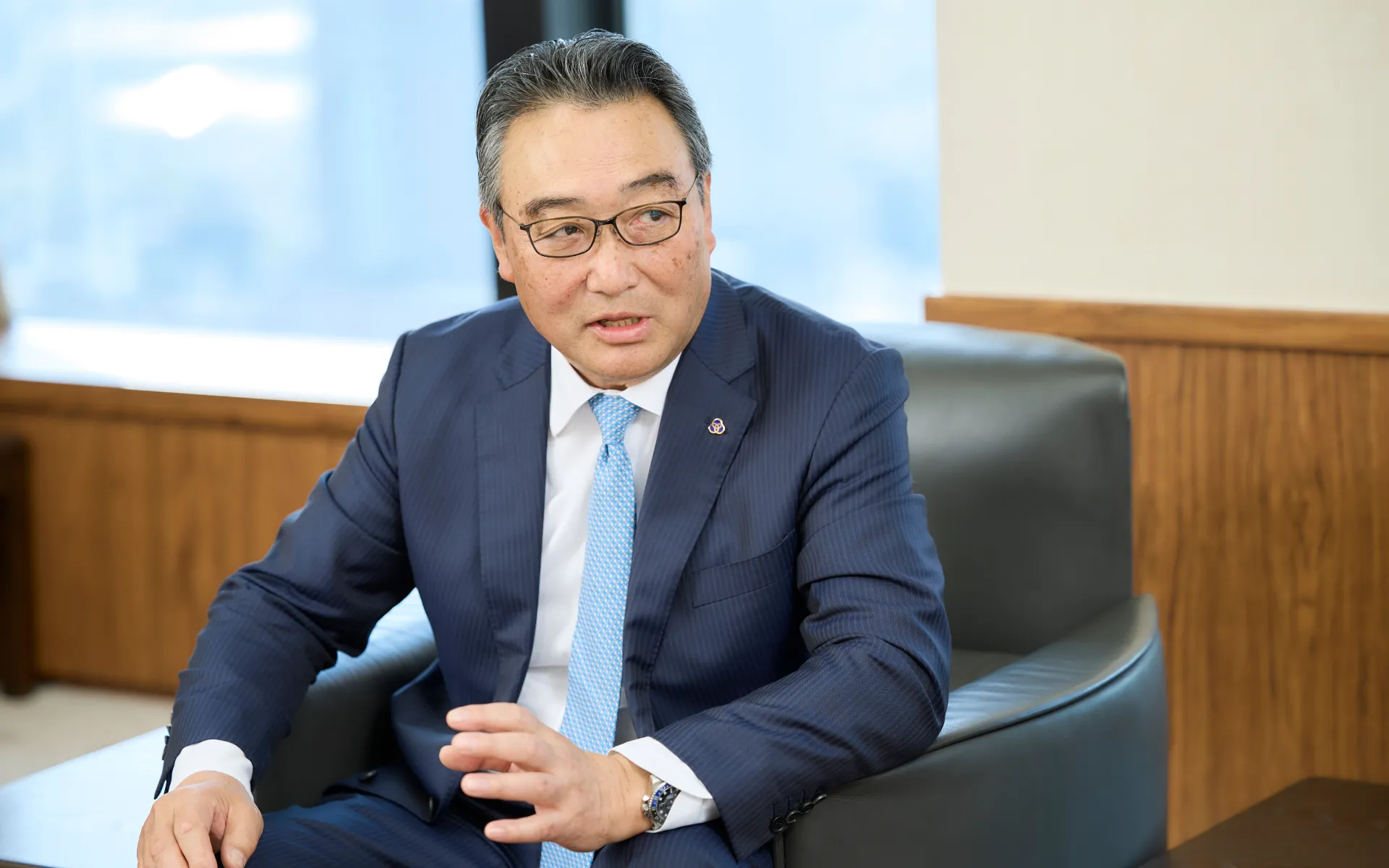
Gokita I understand diversity to mean diversity of values. I consider expertise and business experience in a particular field, gender, nationality, etc., to be manifestations of the diversity of values. As such, I think it is extremely important to ensure diversity that is in line with the actual situation of the company. In terms of nationality, the main directors of ODC in North America and Novoferm in Europe are not Japanese nationals. Therefore, even though all the directors of Sanwa Holdings are Japanese nationals, if you look at the Group companies, there are many non-Japanese directors and executive officers who are playing an active role throughout the Group. As to the question of whether it is necessary to invite some of them to become directors of Sanwa Holdings, I feel that it is perhaps still too early to say at this stage.
Yokota Speaking purely in terms of the diversity of the current four outside directors, I personally believe that we are blessed with a very good balance of members. With the addition of Ms. Ishimura to the team in 2022, I feel that the atmosphere of the Board of Directors has become even better. Actually, I have always doubted whether it is appropriate to discuss diversity simply in terms of whether someone is male or female. In this case, the reason I say that Ms. Ishimura's appointment has brought more diversity to the Board and improved its balance is that she is a digital transformation professional with a wealth of knowledge of IT and digital technology. I am confident that she will continue to provide appropriate advice as the Group goes through the process of transforming its products, services, and business models.
Ishimura I think it's fantastic that the PDCA cycle, an approach that the Sanwa Group has long emphasized, is firmly entrenched here, and that the Group has a strong track record of getting things done. However, we are now at a point where the entire Group needs to change. One way it can achieve this is by aiming to be an innovative organization while ensuring diversity. In order to bring about change successfully, the acquisition of new knowledge is an absolute must. For this reason, I think it is crucial that training is provided not only to employees, but also to management.
Assessing ESG material themes and related issues
Yokota The Sanwa Group is currently promoting ESG based on four pillars: the three material themes of Manufacturing, Environment, and People, and the Management Foundation that supports these. Manufacturing, the first theme, includes the material issue of "Mitigate/adapt to climate change, prevent disaster loss through products and services." When you add up net sales of products that fall under this theme for fiscal 2023, the total comes to around ¥200 billion. In other words, products under this category account for around 33% of the Group's net sales of ¥611.1 billion. This example just goes to show how manufacturing is one of the Sanwa Group's strengths, and that it is wielding this strength in a way that is making a significant contribution to addressing social issues. That said, there are still a number of issues that need to be addressed. For instance, with regard to Environment, the second theme, each business company is making progress in initiatives to reduce CO2 emissions, water usage, and waste emissions. Although water usage and waste are calculated based on intensity, how to control those portions that increase in proportion to sales will be an issue. The Group will need to consider a variety of countermeasures, including the use of emissions trading, which will begin in earnest in fiscal 2026.
Ishimura Regarding People, the third material theme, it is good that the Group has created measures intended to create a pleasant and rewarding work environment, and is taking action based on KPIs. However, the time has come to also focus on strategic human resource management that will strengthen global competitiveness. If you consider your human resources portfolio in depth, you should be able to clearly distinguish between those areas that require membership-based human resources and those that require job-based human resources. Going forward, formulating and implementing human resources policies that take this into account will become even more necessary.
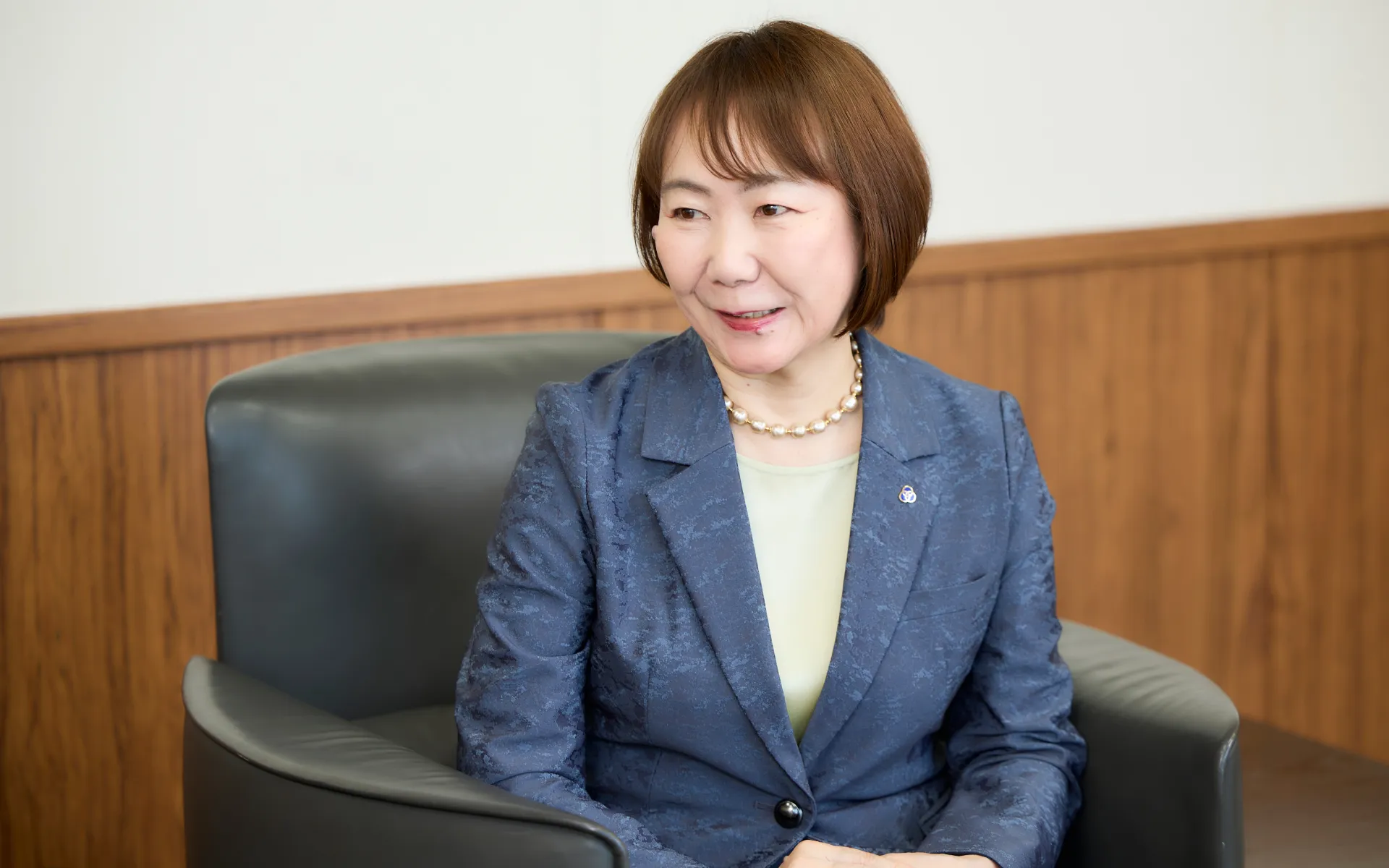
Gokita How the Sanwa Group goes about implementing its human resources policies in the future is a key part of its management strategy, which includes what you just mentioned. In this context, I think it would be a good idea to start by reviewing the Group's past human resource policies, affirming those that have led to good results while clarifying the elements that were lacking. The next step would be to try to combine elements, such as the development of global human resources and the partial introduction of job-based recruitment, with the aim of bringing the organization's shape and personnel deployment closer to the ideal state envisaged for 2030. Another important management strategy related to People is to rebuild the framework for the installation process in anticipation of the time when, in the near future, a large number of subcontractors, especially self-employed workers, many of whom are getting on in years, will be retiring. I feel that the Group cannot afford to shy away from having wide-ranging discussions on such issues.
Yokota One other thing I would like to mention is the ratio of female managers, which is one of the KPIs the Group has set with the aim of promoting diversity. The Group plans to increase the ratio of female managers on a consolidated basis to 15% by fiscal 2030. However, if achieving this ratio is its sole aim, such a target will not be very meaningful. With the true purpose of diversity in mind, it would be preferable to enhance the content of the career development training for female employees that started in fiscal 2022, and to create a training plan for new employees from the recruitment planning stage. In addition, I also think it is important to develop tools and training systems to help employees determine what kind of work they want to do and the positions they aspire to, and to help them map out their career paths. While the Group's strength lies in being able to get the job done properly, there are many employees who simply wait for their superiors to give them instructions. This, by the way, is a characteristic of the manufacturing industry as whole that applies to both males and females. So, I personally feel that it would be good to have training that encourages employees to take more responsibility for their own development.
Yonezawa I think it is very pertinent advice. I also think it is important to engage in deeper discussions on the essential question of why we must achieve the target of 15% by fiscal 2030, and then communicate this aim to employees within the Group.
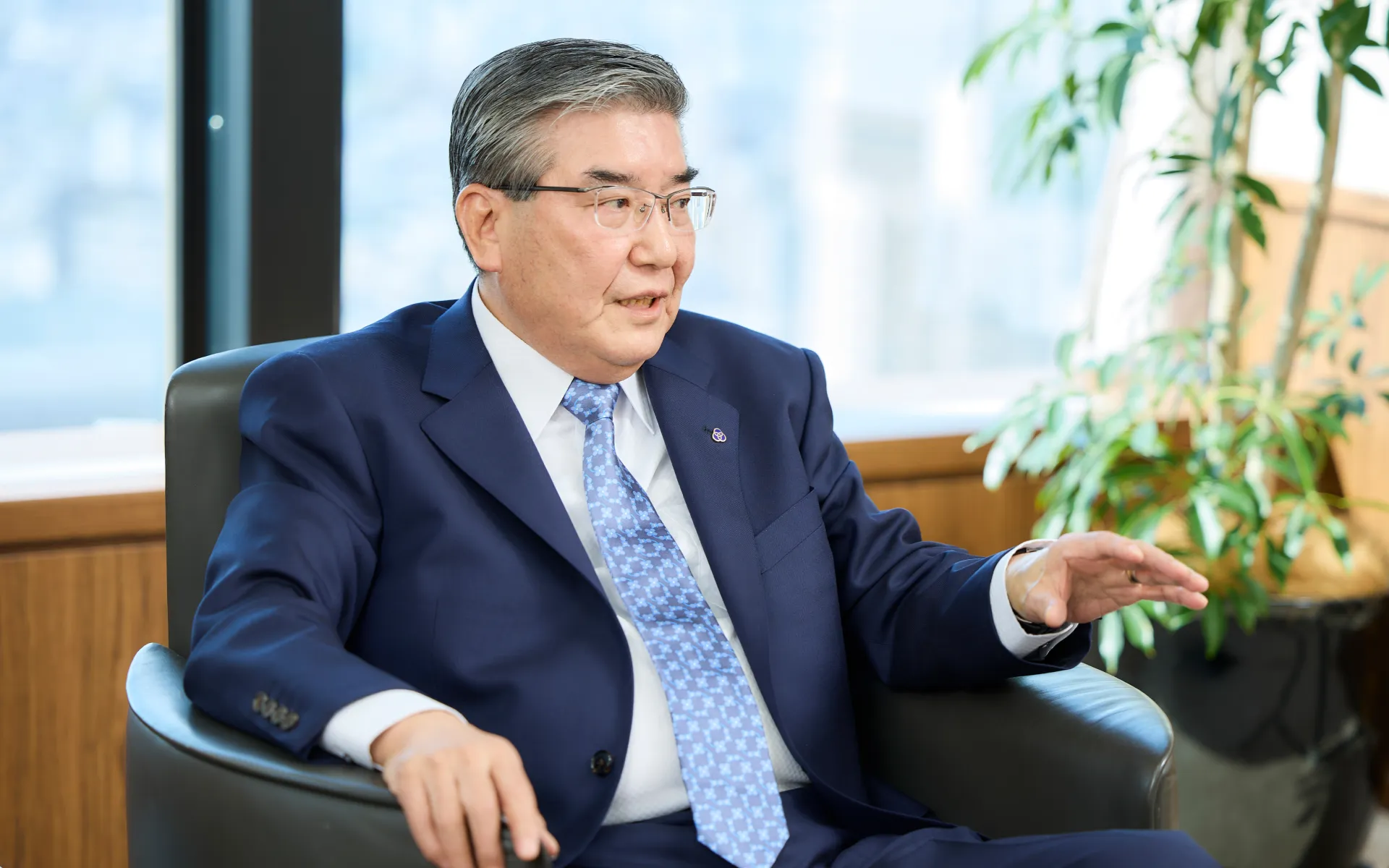
Perspectives and management strategies needed for sustainable growth
Yonezawa If the Sanwa Group is to establish itself as the global leader in smart entrance solutions, it must continue to grow in the global market while enhancing its corporate governance. The key to achieving this is to overcome the various issues we have pointed out in this roundtable discussion one by one. By facing up to each issue with sincerity and finding a way to resolve it, the Group can strengthen the foundations for medium- to long-term growth and emerge even better than it is today.
Gokita The Group is currently performing well, so now is the time to resolve these issues. It is also an excellent opportunity to develop a management strategy that anticipates future risks. The key to improving corporate value is to formulate performance targets and business policies that are in line with the business environment in the near future, while resolving the various issues. Management strategies are not something that the management team can just decide on behind closed doors and then impose on employees. They should be put together after listening to the opinions of those on the front line and taking into account the actual situation. Management strategies that are out of touch with reality often end up being nothing more than pie in the sky. This is scenario that the Group should take care to avoid.
Yonezawa Recently, I have been seeing more and more references to an indicator known as Gross National Happiness (GNH). Unlike economic assessments, GNH is said to be an indicator that primarily evaluates the degree of spiritual well-being, and was originally proposed by the King of Bhutan in the 1970s. It is calculated by evaluating a number of indicators, including living standard, physical and mental health, education, the natural environment, and how people spend their time. Lately, GNH seems to be gaining attention in Europe and the US as a supplementary indicator to Gross Domestic Product (GDP), or what was called Gross National Product (GNP) in the past. I think GNH could also be used as a scale to assess the happiness of Sanwa Group employees. The various measures the Group has already put in place to ensure the safety and health of its employees are also excellent initiatives that will help to increase the overall happiness of employees while monitoring the degree to which the Group is achieving its goals using KPIs. However, I feel that this could be taken a step further, for example, by making use of the Group's strong liquidity on hand to undertake measures that will increase the overall happiness of our employees by improving the salary structure and other benefits. The importance of employees is increasing among the Group's stakeholders. While paying out profit allocation linked to consolidated business performance to shareholders, the Group should clearly demonstrate its desire for growth by increasing investment in core and new business areas and people. I hope to see the start of a Groupwide movement to define what a "good company" really is.
